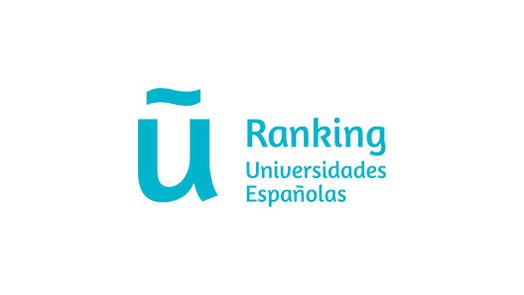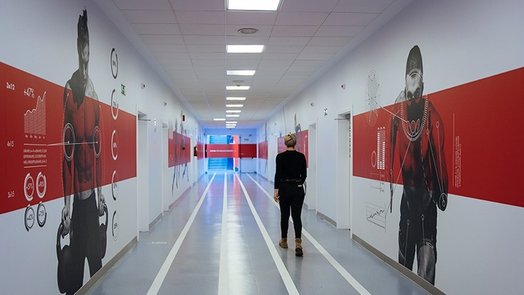-50% Discount on place reservation for 26/27 intake until February 28th!
Biotechnology degree
In the Degree in Biotechnology, we train professionals interested in taking advantage of biological technology to produce healthier food, better medicines, new kinds of materials that are more resistant or less polluting, higher-yielding crops, renewable energy sources and even mechanisms and means of eliminating pollution.
Study for your Bachelor’s Degree in Biotechnology at a university with state-of-the-art facilities, teaching staff who are leaders in their fields of expertise, and an academic model based on experiential learning.
Official degree issued by Universidad Europea de Madrid
| Campus-based | Villaviciosa de Odón | 4 Years, 240 ECTS | Start: 14 sep. 2026 | School of Biomedical and Health Sciences - Madrid |
Experiential Learning in the Bachelor's Degree in Biotechnology
As a student of the Bachelor's Degree in Biotechnology, you will learn through real projects, with a practice-based learning model that will bring you closer to your professional future and will provide you with tools and skills to set yourself apart when entering the job market.
Serve to others to improve their quality of life
Study plan
A curriculum designed to meet the needs of the job market.
During the first years of your bachelor’s degree, you’ll acquire more general knowledge, later deciding which area of Biotechnology you would like to specialise in with the guidance of your professors.
You’ll receive training with the latest technology in bioscience and biomedicine learning to think through Inquiry Based Learning (IBL), and learning by doing with Project-Based Learning (PBL) methodology.
More than 600 internship hours throughout the degree programme, with the possibility of early immersion in research groups guided by professionals.
Study plan structure
Programa de estudios
PRIMER CURSO
| Materia | ECTS | Tipo | Idioma de impartición |
|---|---|---|---|
| General Chemistry | 9 | Core | English |
| Basic Instrumental Techniques | 6 | Compulsory | English |
| Biology | 6 | Core | English |
| Genetics | 6 | Core | English |
| Mathematics | 6 | Core | English |
| Biophysics | 6 | Core | English |
| Information Technology | 6 | Core | English |
| Biochemistry | 9 | Core | English |
| Modern Language I | 3 | Core | English |
| Organization and Management of Biotechnology Companies | 3 | Core | English |
SEGUNDO CURSO
| Materia | ECTS | Tipo | Idioma de impartición |
|---|---|---|---|
| Animal and Plant Physiology | 9 | Core | English |
| Ethics | 3 | Compulsory | English |
| Fundamentals of Biochemical Engineering | 9 | Compulsory | English |
| Organic Chemistry | 6 | Core | English |
| Molecular Genetics | 6 | Compulsory | English |
| General Microbiology | 9 | Compulsory | English |
| Industrial Microbiology | 3 | Compulsory | English |
| Thermodynamics and Chemical Kinetics | 6 | Compulsory | English |
| Biostatistics | 6 | Core | English |
| Modern Language II | 3 | Core | English |
TERCER CURSO
| Materia | ECTS | Tipo | Idioma de impartición |
|---|---|---|---|
| Bioinformatics | 6 | Compulsory | English |
| Molecular Genetic Engineering | 6 | Compulsory | English |
| Protein Chemistry and Engineering | 6 | Compulsory | English |
| Advanced Instrumental Techniques | 3 | Compulsory | English |
| Immunology | 6 | Compulsory | English |
| Cell Culture and Tissue Engineering | 6 | Compulsory | English |
| Pharmacology | 6 | Compulsory | English |
| Functional Genomics and Transcriptomics | 6 | Compulsory | English |
| Molecular Pathology | 6 | Compulsory | English |
| Plant Biotechnology | 3 | Compulsory | English |
| Experimental Biotechnology | 6 | Compulsory | English |
CUARTO CURSO
| Materia | ECTS | Tipo | Idioma de impartición |
|---|---|---|---|
| Biotechnological Processes and Products | 9 | Compulsory | English |
| Bioreactors | 9 | Compulsory | English |
| Pharmaceutical Biotechnology | 6 | Compulsory | English |
| Proteomics and Metabolomics | 6 | Compulsory | English |
| Internship in Biotechnology Companies I | 6 | Compulsory | English |
| Final Project | 6 | Compulsory | English |
| Internship in Biotechnology Companies II | 6 | Optional | English |
| Food Biotechnology | 6 | Optional | English |
| Environmental Biotechnology | 6 | Optional | English |
| Academic Activities | 6 | Optional | English |
| Pharmacogenetics and Pharmacogenomics | 6 | Optional | English |
Internships
In-company internships are a key part of your training. Gaining experience based on what you have learnt in your degree is the best way to enter the job market. There are two types of internships: curricular (included in the curriculum) and extracurricular (those that you can choose to do on a voluntary basis).
In order to do an in-company one, you’ll need to have obtained 50% of the credits and to enrol in the subject before starting your internship. These internships are monitored by the company and the internship professor, and also involve interim and final assessment reports.
If you would like to improve your work experience before finishing your university studies, you can do an extracurricular internship. You can do one in any academic year, but we would remind you that internships are a training complement to your studies. Therefore, the more knowledge you’ve already acquired over the course of your programme, the more you’ll benefit from the internship experience.
During the final year, you’ll do an internship at a key institution, research centre or company in the biotechnology sector at national and international level, which will allow you to put into practice all the knowledge you have acquired. These include:
- ASEBIO associated companies
- National Centre for Biotechnology (CNB)
- Spanish National Research Council (CSIC)
- Carlos III Institute of Health (ISCIII)
- The Foundation for Biomedical Research at the Gregorio Marañón Hospital, the Foundation for Biomedical Research at the Getafe University Hospital and the Toledo Paraplegic Hospital.
- And in biotechnology and pharmaceutical companies such as Genómica, ERCROS, Lilly, BMS, Quintiles, IVI, Cofares, Febiotec, Bioenergía y Desarrollo Tecnológico, Biotools, Carestream Health Spain, Federación Española de Centros Tecnológicos, IMERETI, Genómica S.A.U., Pharmamar, 3P Biopharmaceuticals, Gamesa Innovation & Technology, General Electric International INC, Jansen Cilag SA, Kantar Health SA, KOM Pharmatec Labs, LABCO Pathology SLU, Laboratorios Alcalá Farma, Laboratorios Medicamentos Internacionales SA, Lilly, Lonza Biologicals Porriño, Medtronic Iberica, Merk Sharp Dohme España, Mönlycke Health Care, Praxis Biopahrma Research Institute, Proteus Research, Roche Pharma, Sanitas SA de Hospitales, Siemens, Star Petroleum SA, Unidad de Reproducción SA, Veolia Water System Iberica and Wyeth Pharma.
- Madrid Science Park, Inkemia
Click here for more information on the internships offered at key institutions, research centres and companies in the biotechnology sector at national and international level.
Employability
100% of our graduates get their first job in the first year, and are working in positions directly related to Biotechnology (Employability survey data 2018-19).
Career Opportunities for Biotechnology Graduates
Biotechnology is one of the areas with the greatest potential for growth and employability, as can be seen in the pharmaceutical, agri-food, chemical and environmental science fields. In Spain there are more than 3,000 companies specialised in this sector - which represents 8.6% of the GDP - and demand for professionals who are well-prepared and capable of meeting the challenges ahead is high. This translates into interesting career opportunities (described below) that we will prepare you to take on in research, development, production, marketing, management and control of biotechnological products:
Healthcare
- Development of products or services in the pharmaceutical or biotechnological fields.
- Design of production and purification processes for compounds of clinical or industrial interest.
- Quality control programmes in the pharmaceutical and biotechnology industry.
- Design and production of diagnostic systems for various pathologies.
- Genetic analysis services, genomics, microscopy, biochemistry in hospitals or research centres.
- Fertility and assisted reproduction companies.
- Access to health specialisations through the BIR and QIR.
Agribusiness and livestock
- Programmes aimed at efficiency and crop profitability
- Food safety and control.
- Development of new products such as probiotics and nutraceuticals.
- Development of biotechnological products to achieve improvements in livestock production.
- Genetic analysis and genetic improvement of breeds of interest in livestock production.
Production and improvement of fermented foods and beverages, vitamins, amino acids and other products of agri-food interest.
Environmental
- Programmes for the development of products or services that are of environmental benefit.
- Natural resource protection programmes (biosafety and bioremediation).
- Design of environmental decontamination strategies using biotechnological methods.
- Biological pest control, and biofertiliser and biopesticide production and development programmes.
Organisational
- Advisory and consultancy programmes.
- Design and management of R&D+i programmes.
- Development of innovation projects.
- Intellectual property protection and patent development programmes.
Organisational Teaching and research (public and/or private centres)
- Development of basic and applied research.
- University teaching.
- Research work.
- Work in the media.
Admissions
Start your future at Universidad Europea
You can become a student at Universidad Europea in three easy steps.
1
Admission exams
Start your admission process by calling +34 918257503 or request information and our advisors will contact you.
2
Place reservation
Once you have been admitted, secure your place by paying the reservation fee.
3
Enrollment
Submit the required documents to formalise your enrollment.
Scholarships and financial aid
We want to help you. If you want to study at Universidad Europea, you will have at your disposal a wide selection of own and official scholarships.
Credit recognition and transfers
You don’t have to stick with something you don’t like. That’s why we’ve designed specific plans for credit recognition and transfers.
Request your online credit recognition review, transfer your academic file and start studying at Universidad Europea.
Open days
We know that now is an important moment to progress in your professional future. That is why we open our virtual doors to you and invite you to join us. We want you to meet the director of your programme and solve all possible doubts you have. You’ll also discover what makes our students and our online methodology unique.
19 February
Faculty
94.4% of our professors have a PhD degree in different areas of knowledge, and many are professionals who combine teaching with professional activity, bringing you closer to the realities of the profession.
Excellence endorsed by the best
Frequently Asked Questions
Is the biotechnology degree programme difficult?
Success on the biotechnology programme requires effort throughout. Simply studying the day before the exam will not enable you to achieve a pass. Because of highly practical content, you will not only be focusing on theoretical subjects, you’ll also be spending a lot of time in the laboratories and will need to demonstrate the acquisition of practical skills.
It should also be noted that the curriculum contains a significant amount of mathematics, physics and chemistry, so if you’re good at these subjects, you should have no problem!
What is biotechnology used for?
Biotechnology is a very broad discipline, based on using processes that exist in nature and modifying and adapting them to obtain new products or value-added processes. Biotechnology has been used since prehistoric times to produce fermented products such as bread and beer, and to select grain in agriculture to increase productivity. With the development of DNA technology in the 1980s, biotechnology found a new level of application with genetic modification.
Thus, biotechnology is currently used for the detection of disease, the production of new drugs of biological origin, the production of enzymes for the food, textile and pharmaceutical industries, the production of fermented foods and the bioremediation of contaminated environments, as well as other applications.
Do you need physics to study biotechnology?
It is desirable to have taken physics at some point at secondary school. In other words, a focus on science at secondary school is preferable to any other. If you've taken physics all through secondary school except in the second year, you can still take Biotechnology, as the first year of the degree includes a subject called Biophysics which has the basic content you need for subjects in subsequent academic years such as Thermodynamics and Chemical Kinetics and Fundamentals of Biochemical Engineering.
What does a biotechnologist do?
A career in biotechnology is highly multidisciplinary, meaning that a biotechnologist can work in a variety of fields. Working in an R&D lab might be the one that first comes to mind, but biotechnologists could also work in production plants, thanks to their engineering expertise. A biotechnologist can also work in the pharmaceutical, food or chemical industries. Furthermore, a biotechnologist can access the BIR and various competitive Ministry of Health and Consumer Affairs examinations.







